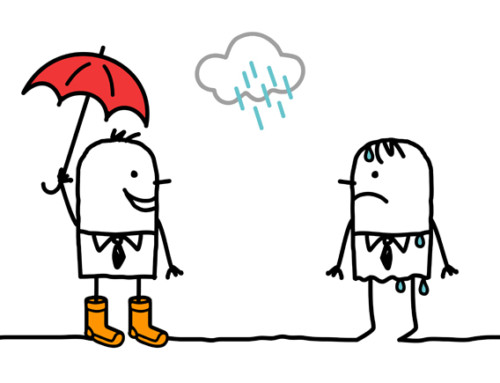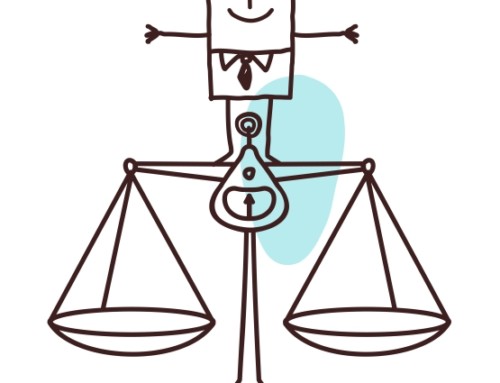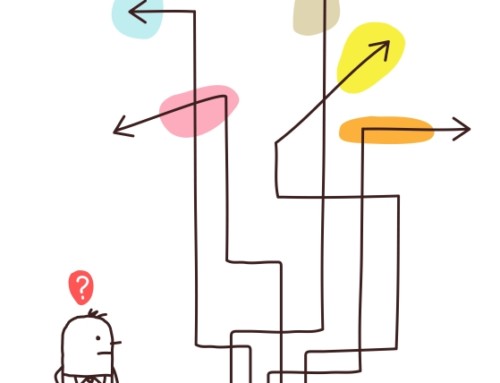In this article, I discuss how moving away from the tendency toward reducing uncertainty can help you feel better in response to negative situations.
In my work as a Calgary psychologist and a Cochrane psychologist, I have been influenced by the statements of many prominent people in my field. One such occasion was when I attended a talk given to the public by depression expert Dr. Michael Yapko. Dr. Yapko said that being able to tolerate uncertainty and ambiguity is one of the most important skills a person can practice to overcome depression.
The statement and Dr. Yapko’s elaboration on it helped me to understand why people gravitate toward negative thinking which fuels depression and other unpleasant mood states. It also provided me with a new strategy to help my clients change their thinking to improve their moods. In the following sections, I will illustrate how Dr. Yapko’s strategy of tolerating uncertainty and ambiguity can be used to address a multitude of strong moods such as depression, anxiety, anger, guilt, frustration and many others.
How reducing uncertainty can be bad for your moods
Dr. Yapko pointed out in his talk that uncertainty and ambiguity are inherently stressful and that people therefore are motivated to reduce these states in order to feel better. One way this motive manifests itself is in how we think about negative events which happen to us—in particular, which explanations we choose to focus on to account for why these negative events happen to us.
As an example, Dr. Yapko invited the audience to consider possible explanations running through their minds for the hypothetical scenario in which someone leaves him a phone message and doesn’t hear back from him. Among the possible explanations the audience provided were negative ones like “You didn’t think I was worth calling back,’ as well as less negative ones such as “You didn’t get my message” and “You were in an accident and couldn’t call”.
Dr. Yapko pointed out that in such a scenario it is impossible to determine with certainty which, if any, of the explanations the audience suggested are correct. He added that this necessarily means you will be in a state of uncertainty and ambiguity which you will find stressful. As a consequence, you will likely try to reduce your stress by imposing certainty on an inherently uncertain situation by ‘seizing on’ one explanation as the definitive one. In many instances, people will choose the negative explanation “You didn’t’ think I was worth calling back” because it hasn’t been ruled out and because it may fit with a person’s negative view of themselves.
Although choosing one explanation rather than juggling several possibilities reduces your stress by lessening uncertainty and ambiguity, the big price you pay for this benefit is a significant negative effect on your mood due to focusing on an explanation which involves a negative belief about yourself. In this instance, focusing on the negative explanation fuels a mood like depression. In other instances, doing so will intensify your anxiety, anger, guilt or frustration. In other words, the price you pay for fulfilling your need to reduce uncertainty is a substantial negative impact on your mood. In the next section, I will propose an alternative course of action favoured by Dr. Yapko which leads to a better effect on your mood in terms of how you can think about negative events in your life—tolerating uncertainty and ambiguity.
How tolerating uncertainty can be good for your moods
A better way to think about negative events in your life is to allow to coexist in your mind all plausible explanations—both negative and positive. In Dr. Yapko’s example, this would involve acknowledging the negative explanation (that he didn’t think you were worth calling back) but at the same time recognizing the validity of the less negative explanations (that he may not have received your message or was unable to respond due to factors beyond his control). Although your acknowledgment of the various negative and less negative explanations creates more ambiguity and uncertainty than settling on one explanation, research indicates that allowing the various explanations to coexist in your mind will lead to a more positive effect on your mood.
Some people balk at this approach because they incorrectly assume that it entails your dismissing a negative explanation and focusing instead on a positive explanation. That is not the case. Instead, the method involves acknowledging possible negative explanations but balancing these with more positive explanations which also are possible. This illustrates a key tenet of cognitive behavioural therapy (CBT): It is not simply positive thinking. Instead, it helps you to consider all the available information to improve your mood.
How to practice improving your moods by tolerating uncertainty
The best way to realize the benefits of this balanced thinking approach is to try it out. The next time a negative event happens in your life and you are about to focus only on the most negative explanation, consider whether there are other plausible explanations which are less negative. Then practice thinking of these in addition to, not instead of, possible negative explanations.
Try to resist the temptation to settle on one explanation to reduce uncertainty and ambiguity unless the evidence points to only one explanation. Then compare the effects on your mood of this balanced thinking approach to the single explanation, black-and-white-thinking approach which reduces your uncertainty and ambiguity. When you see for yourself that the balanced thinking approach brings with it the benefit of positive effects on your mood, you are more likely to be willing tolerate some uncertainty and ambiguity to achieve this benefit going forward.
You may find it helpful to work with a psychologist who specializes in CBT in implementing the ideas from this article. The skills discussed can be applied in depression counselling, anxiety counselling, anger management counselling, trauma counselling, addiction counselling, eating disorders counselling, self-esteem counselling and many other areas.
May you improve your mood by tolerating uncertainty,
-Dr. Pat






It has been said it takes 21 days to break a habit. Do you recommend any daily excerises in regards to the CBT approachyou have spoken about in your article?
Thank you for your comment and question.
One daily exercise I recommend is that when you have a negative thought leading to strong emotions (e.g., sadness, anxiety, anger, frustration, guilt) that you practice listing both the evidence supporting and the evidence not supporting the negative thought. A second daily exercise I recommend is to list people and things you’re grateful for to balance against people and things you’re not grateful for. A third daily exercise I recommend is to list instances in which your positive characteristics are demonstrated in specific situations. List the situation and your positive characteristic which was evident in the situation. Those are three exercises which have a track record of success in helping a person improve their moods on an ongoing basis.